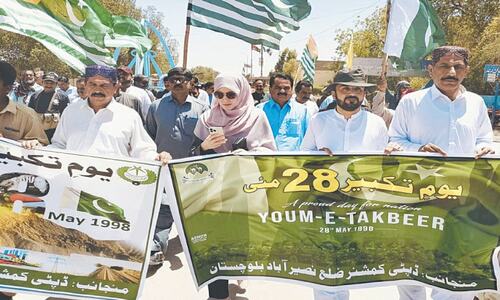YANGON: Myanmar peace negotiators agreed the draft text of a historic nationwide ceasefire agreement on Monday, as the country edges closer to ending decades of conflict between ethnic minority groups and the government.
The tentative deal, which comes as heavy fighting between the military and rebel groups continues to ravage a northern border area, sets out the framework for a countrywide ceasefire — a key target of the government as the nation heads towards crucial elections later this year.
But the draft, which was negotiated by representatives of the government and the 16 ethnic armed groups involved in the talks, will only officially be signed after a conference of the rebel groups.
“This is the first step to signing a nationwide ceasefire agreement and to move to political dialogue,” said Naing Han Tha, who led the ethnic group negotiators. No date has so far been given for the rebel conference.
But negotiators said they had managed to find mutually acceptable ground on most points, adding that some more difficult sections were excised from the agreement.
“Now we have an understanding,” said Hla Maung Swe, one of the senior government negotiators, at a press conference.
“There is nothing left to discuss. From our side, we are ready to sign,” he added.
Myanmar has been racked by unrest since independence from Britain in 1948 as insurgencies flared among minority groups demanding greater autonomy.
Conflicts were fuelled in part by tussles over the country’s rich resources.
POLITICAL REFORMS: The quasi-civilian government, which took power after decades of army rule in 2011, has made a peace agreement with an array of rebel groups a cornerstone of its political reforms.
Observers say the looming election, expected in November, has added urgency to these efforts, with fears that local political jockeying could override wider moves to achieve peace.
Lengthy negotiations have stumbled on a range of thorny issues, including the concept of a federal military, while continued fighting in northern Kachin and Shan states has overshadowed the talks.
Unrest in the Kokang region of Shan state began last month and shook relations with China as tens of thousands fled heavy fighting on the border. The clashes have heightened fears over the peace process.
Published in Dawn, March 31st, 2015
On a mobile phone? Get the Dawn Mobile App: Apple Store | Google Play













































Dear visitor, the comments section is undergoing an overhaul and will return soon.